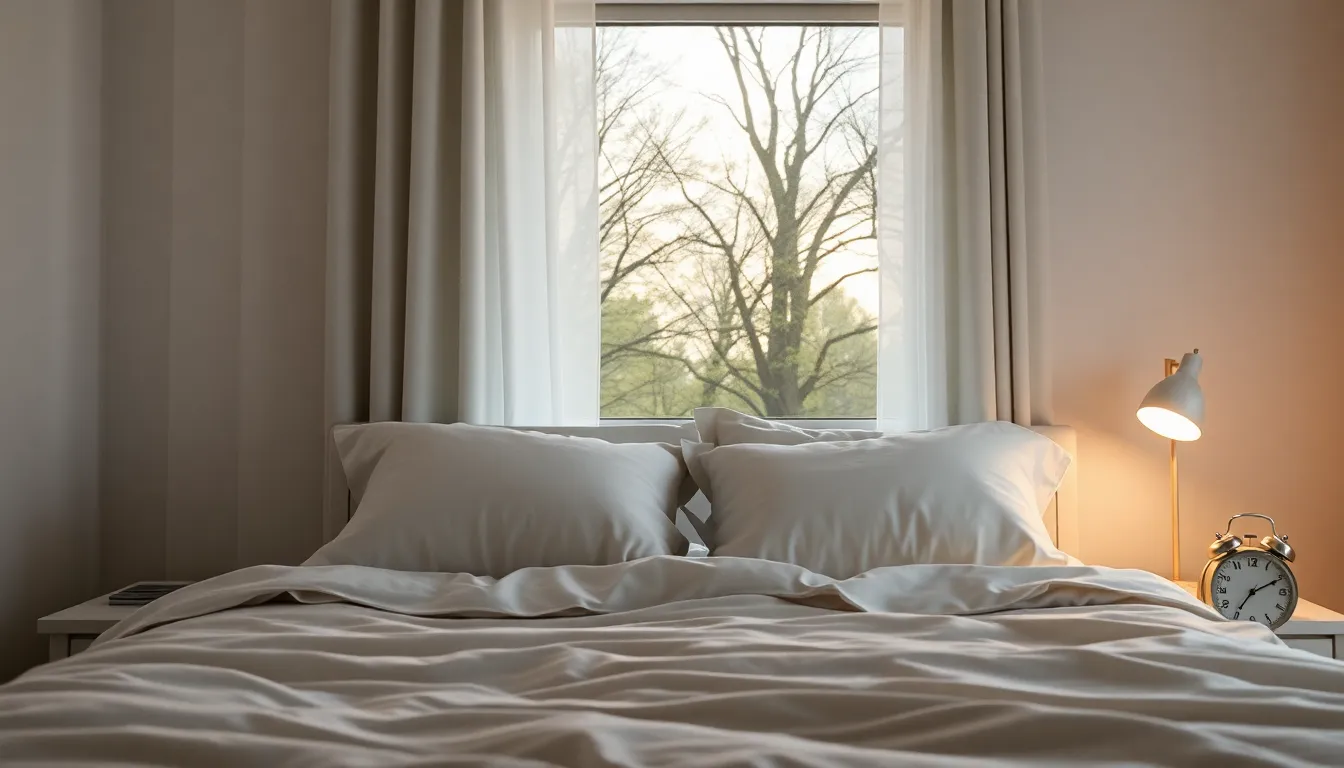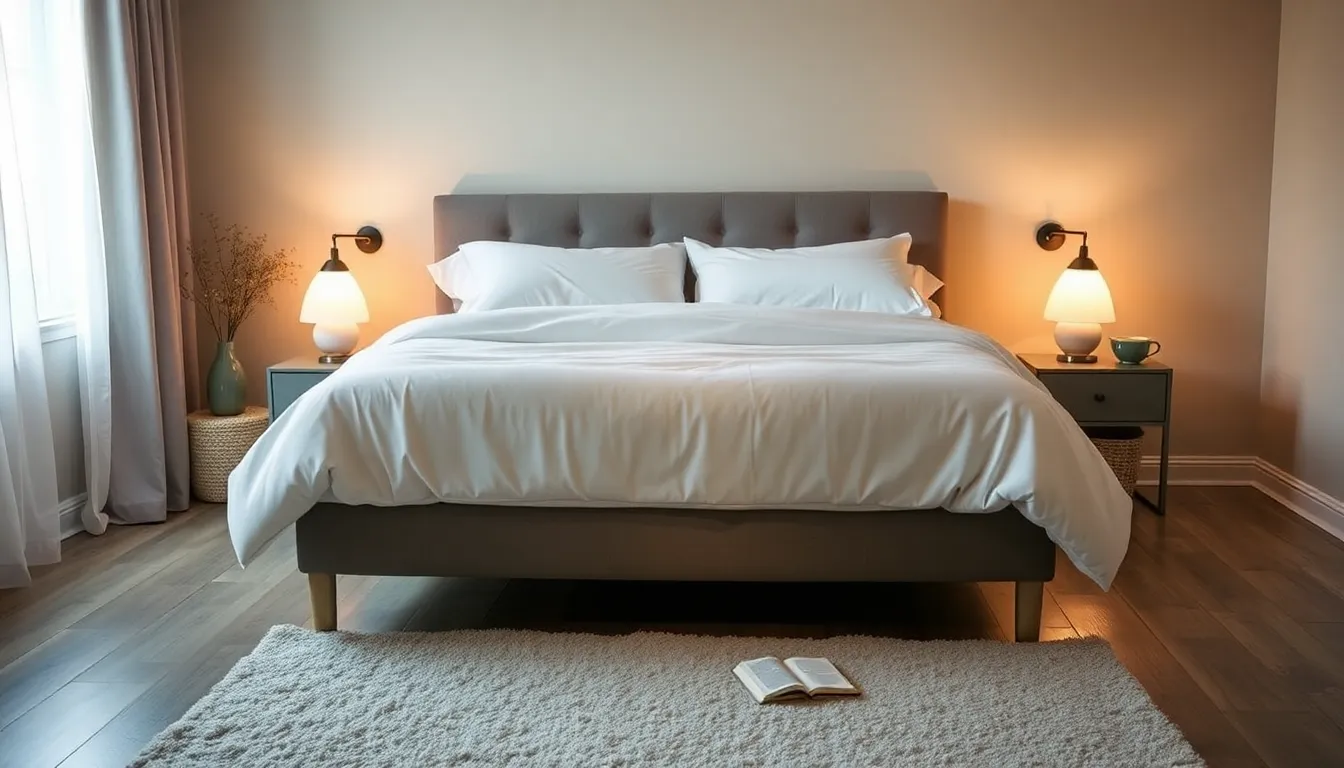Table of Contents
ToggleEver spent a night tossing and turning, wishing for sleep like it’s a long-lost friend? If so, you’re not alone. A good night’s sleep is often harder to achieve than finding a unicorn in your backyard. But it’s time to turn that around. Let’s jump into the importance of sleep, share some handy tips for achieving restful slumber, and identify common sleep disruptors, all while having a bit of fun along the way.
Importance Of A Good Night’s Sleep

Sleep isn’t just a fluffy dream that everyone talks about: it’s an essential part of a healthy lifestyle. Think of sleep as your body’s personal maintenance mode. From physical recovery to mental clarity, a good night’s sleep is foundational.
Physical Benefits Of Sleep
When it comes to physical health, sleep is your best friend. Proper sleep helps the body recover from fatigue, repair tissues, and even strengthens the immune system. Lack of sleep, on the other hand, can lead to weight gain, a weakened immune response, and increased risk for various diseases. Who knew that hitting the pillow could be so powerful?
Mental Health Benefits Of Sleep
Mental well-being thrives on good sleep. Research shows that lack of rest increases anxiety and depression. During sleep, the brain processes emotions and experiences, consolidating memories and improving mood regulation. So, when someone says, “I need my beauty sleep,” they might just be onto something.
How Sleep Affects Productivity
Sleep directly influences productivity levels. A well-rested mind is sharper, more focused, and able to tackle tasks more efficiently. Workers who get adequate sleep make fewer mistakes and experience higher job satisfaction. So next time a colleague seems overly cranky, just remind them that a nap could do wonders.
Tips For Achieving A Good Night’s Sleep
So, how can one achieve that elusive good night’s sleep? Here are some actionable tips that can help anyone fall asleep faster and wake up feeling refreshed.
Creating The Ideal Sleep Environment
Creating a cozy sleep sanctuary is crucial. This means keeping the bedroom dark, cool, and quiet. Use comfortable bedding, and pick a pillow that supports your neck without resembling a brick. Adding calming elements, like soft lighting or even a white noise machine, can enhance the ambiance. The goal? Transform your sleep space into a personal retreat.
Establishing A Consistent Sleep Schedule
It’s important to follow a routine. Going to bed and waking up at the same time daily helps regulate the body’s internal clock. Variations may lead to restless nights, impacting energy levels. This means saying goodbye to those late-night TV marathons, yes, even the ones that are just one more episode.
Relaxation Techniques Before Bedtime
Before her head hits the pillow, many turn to relaxation techniques. Activities like reading a book, meditating, or practicing deep breathing can help calm racing thoughts. Essentially, developing a pre-sleep routine can signal the body that it’s time to wind down.
Common Sleep Disruptors To Avoid
Even with the best of intentions, some factors can sabotage sleep. Understanding these disruptors is key to achieving that peaceful slumber everyone craves.
Effects Of Blue Light Exposure
In this digital age, blue light from screens is a notorious sleep thief. It tricks the brain into thinking it’s still daytime, disrupting melatonin production. Limiting screen time an hour before bed is vital. So charge that phone in another room and pick up a book instead, your sleep will thank you.
Caffeine And Sleep Quality
Caffeine’s tempting aroma can lead to regrettable decisions when trying to sleep. Consuming caffeinated beverages too late in the day can hinder the ability to fall asleep, leading to groggy mornings. It’s best to switch to herbal tea as nighttime approaches.
Managing Stress And Anxiety
Life can be stressful, and unwelcome thoughts can often surface right when it’s time to sleep. Incorporating journaling or stress-relief techniques can help clear the mind. Why not let those worries float away on a cloud of fluffy pillows instead?







